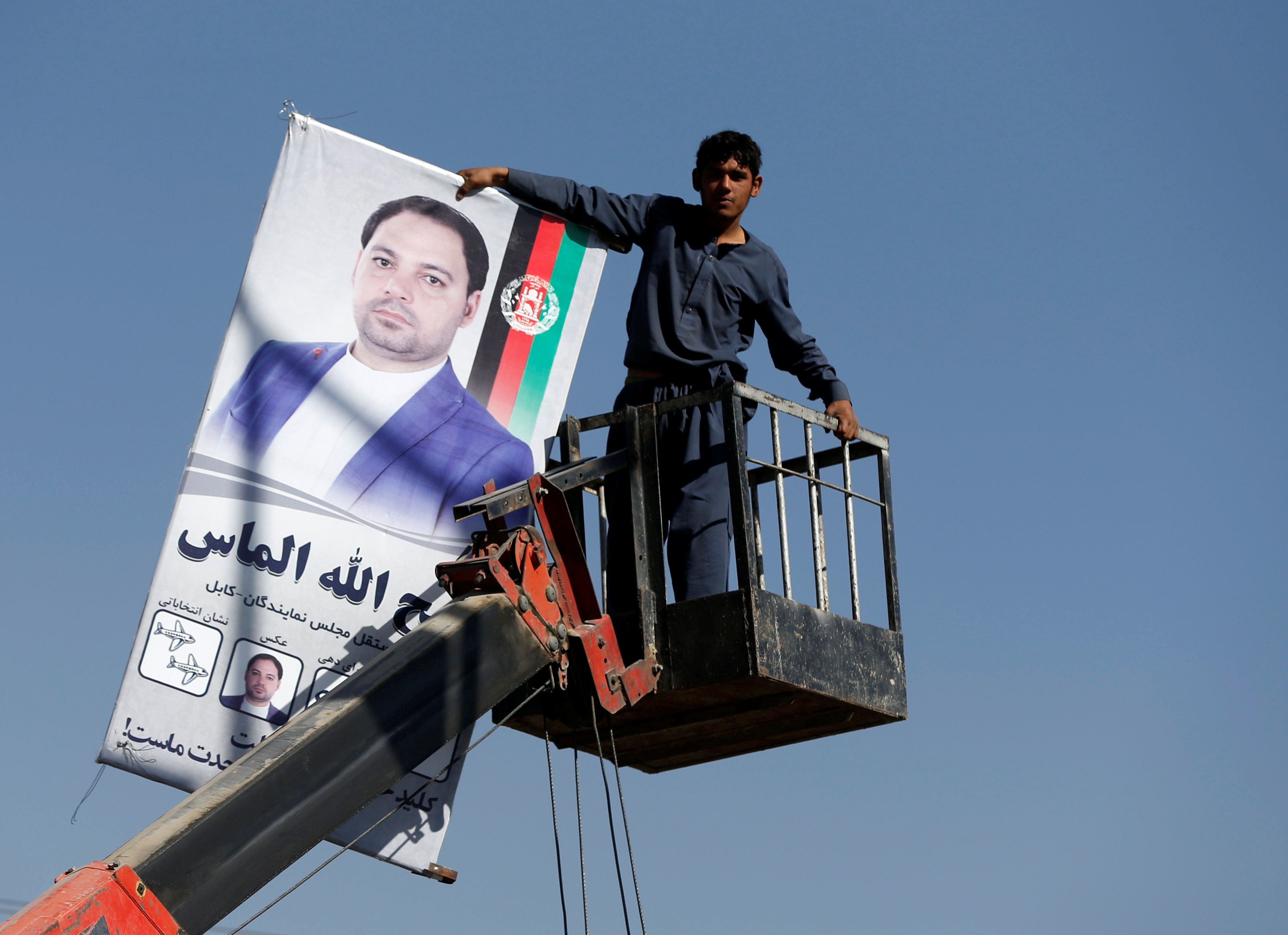It was supposed to be a moment of progress and national renewal. But as Afghans head to the polls on Saturday for long-delayed elections in which 2,500 candidates are contending for 249 seats in parliament, their country is struggling with a litany of challenges – Gabe breaks it down for you:
Seventeen years after the United States led an invasion meant to uproot the Taliban and create conditions for a new national government, violence persists, central authority is weak outside of the capital, and a resurgent Taliban controls large swaths of the country. The political situation is badly fractured – following an inconclusive presidential election in 2014, Afghanistan has been governed by a tenuous US-backed power sharing arrangement between President Ashraf Ghani and his rival Abdullah Abdullah, who holds the post of “chief executive.”
Tomorrow’s elections were originally scheduled for 2015, but violence and political bickering made that impossible. Although security has improved in some areas, around a third of polling places across the country will not even be open on Saturday because it’s too dangerous. So far, at least 10 candidates running for office have been killed, including a parliamentary candidate who died on Wednesday from a bomb planted under his office chair.
One way to stem the violence would be a peace deal between the government and the Taliban. But despite an unprecedented ceasefire earlier this year, the prospect for peace seems far off. While the Trump administration is interested in brokering a peace, Kabul is wary of working through Washington—a precondition for the Taliban, who refuses to negotiate directly with the Afghan government. President Ghani will be increasingly reluctant to risk a politically costly peace process whose results are uncertain as he looks toward reelection next year.
Saturday’s vote could prove a step in the right direction. The fact that the unity government is finally allowing the election to take place suggests it may finally be ready to agree on long-stalled electoral reforms that would enable a smoother and more transparent presidential election next year. As for the election itself, younger Afghans are running for office in droves and a new generation is turning out to vote in an effort to bring fresh energy to government and to put an end to the country’s endemic corruption.
After years of delay, it’s a good sign that Afghans will finally get an opportunity to cast their ballots. Whether the vote ushers in much-needed change for a nation beset by challenges remains to be seen.
